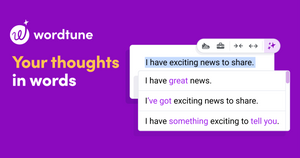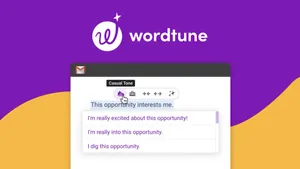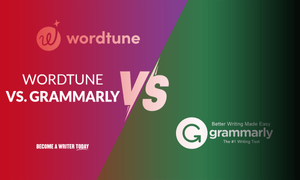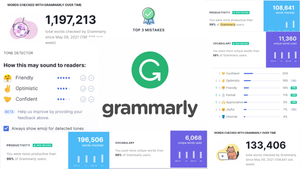Grammarly and QuillBot and Wordtune and ProWritingAid
At least 50% off from FlexSub
Subscribe Now
I have writing experience. Kind of. I'm an educated journalist who, in reality, writes only when it sounds good. In other words, I use my ear to determine whether a sentence sounds nice when I repeat it aloud. If it doesn't sound seamless and conversational, it isn't.
I understand grammar, at least in part, but my unpolished writing shows substantial errors in spelling, phrase construction, and paragraph organisation.
A Medium editor suggested that I use Grammarly, possibly out of charity but more likely to make her feel better. The company has been around for at least ten years, but I may have felt I didn't need or desire it out of pride. Considering how much I rely on Microsoft Word's spell and grammar checking, it was an unexpected choice.

A digital safety nett struck me as a good idea now that I'm writing virtually every day for this Medium blog and occasionally posting without a single editor taking the initial pass.
Grammarly is a free standalone web programme and browser plug-in that scans your material for spelling, grammar, and even tone issues using a combination of artificial intelligence and natural language processing (how your writing sounds to others).
Writing well involves more than simply grammar and clarity; you also need to understand your readership. Grammarly enables authors like me to set objectives to make sure that the readers of my writing are the right ones. My default settings presume, for example, that my audience is "Knowledgeable" (rather than, say, "Expert"), the formality is "Neutral" (rather than the "Formal" I would never use), and the domain is "General" (rather than, say, "Creative" or "Academic"). Grammarly is a source of continuous writing feedback everywhere you use it. I particularly like the small smiling face I get when it thinks my writing will come across as nice to my readers.

I can load an entire text file for analysis into the Grammarly web app. I use the free version, which provides a lot of guidance, but I don't think I need that much writing assistance. For $139.95 a year (their "best bargain"), I could get a lot more assistance (it can even check for plagiarism). Do I?
The online app displays the total number of mistakes along with an overall grade (out of 100) that accounts for clarity, engagement, and delivery. Nine grammar errors were found in the initial draught of this paper, which was also rated as "clear" but "a little boring" and "slightly off" for delivery. Grammarly understands me thanks to my last grade.
Grammarly is monitoring practically all of my online writing as a Web extension, from wordy emails on Gmail to snappy tweets (it does not work inside Medium on Microsoft Edge). My compose windows now have a tiny green dot, albeit I can disable Grammarly for each individual online service. A semicircle with an arrow spinning inside of the dot is waiting for me to type my first grammatical mistake. As I do, the circle turns an angry red. There is a list of my mistakes when I cease. When I click the circle, a pop-up window that walks me through corrections appears.

However, I prefer to keep my cursor over the term that is marked in red and wait for Grammarly to suggest an appropriate replacement. These recommendations differ from Gmail Smart Compose, the sage mail AI that enjoys completing your sentences for you (if you hit tab on a ghostly suggestion). Grammarly generally sticks to spelling, grammar, usage, and tone.
I don't have to right-click to see these changes, which is wonderful unless the pop-up collides with another online page or web service pop-up, unlike the majority of spell checks, including the one included with Microsoft Edge. Grammarly is not faultless. It is possible for it to overlook a sentence's context and ignore a word because it is spelt correctly but doesn't belong there.
Generally speaking, Grammarly has cruelly brought to light some of my worst writing tendencies and terrible habits—habits that devoted readers have probably been aware of for decades. I'm making an effort to clean them up.
Would I pay money to perhaps improve as a writer? Grammarly informed me that I could get an additional 67 suggestions if I upgraded to "Premium" in one recently examined work. Grammarly's analyser doesn't seem to understand that most authors, like me, live from one narrative to the next and must weigh the advantages of being a slightly better writer against having to support oneself.
Grammarly and QuillBot and Wordtune and ProWritingAid
At least 50% off from FlexSub
Better, flexible and cheaper subscriptions for a wide range of services in just a click of a button.
Get started now



